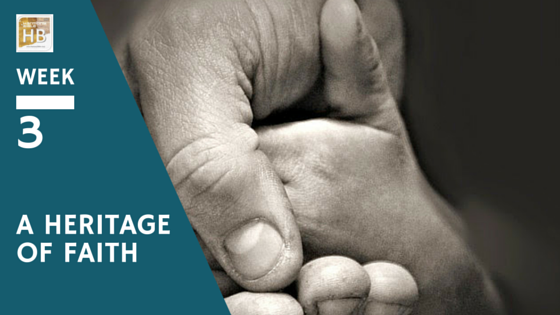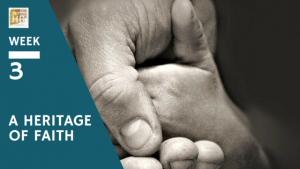Week 12 | Sections 16, 17, 18, 19
 Sometimes unfortunate events turn out to be an integral thread of God’s handiwork in the tapestry of our lives. Jesus’ childhood journeys to Bethlehem, Nazareth, Egypt and Galilee are evidence of such and the experiences of Jesus early years helped prepare him for a lifetime of ministry.
Sometimes unfortunate events turn out to be an integral thread of God’s handiwork in the tapestry of our lives. Jesus’ childhood journeys to Bethlehem, Nazareth, Egypt and Galilee are evidence of such and the experiences of Jesus early years helped prepare him for a lifetime of ministry.
Scripture:
Section 16
[one_half last=”no”]Matthew 2:19-23
19 But when Herod was dead, behold, an angel of the Lord appeared in a dream to Joseph in Egypt, saying, 20 “Arise and take the young child and his mother, and go into the land of Israel, for those who sought the young child’s life are dead.” 21 He arose and took the young child and his mother, and came into the land of Israel.22 But when he heard that Archelaus was reigning over Judea in the place of his father, Herod, he was afraid to go there. Being warned in a dream, he withdrew into the region of Galilee,23 and came and lived in a city called Nazareth; that it might be fulfilled which was spoken through the prophets: “He will be called a Nazarene.”
[/one_half]
[one_half last=”yes”]Luke 2:39
39 When they had accomplished all things that were according to the law of the Lord, they returned into Galilee, to their own city, Nazareth.
[/one_half]
Section 17
Luke 2:40
40 The child was growing, and was becoming strong in spirit, being filled with wisdom, and the grace of God was upon him.
Section 18
Luke 2:41-50
41 His parents went every year to Jerusalem at the feast of the Passover. 42 When he was twelve years old, they went up to Jerusalem according to the custom of the feast,43 and when they had fulfilled the days, as they were returning, the boy Jesus stayed behind in Jerusalem. Joseph and his mother didn’t know it, 44 but supposing him to be in the company, they went a day’s journey, and they looked for him among their relatives and acquaintances. 45 When they didn’t find him, they returned to Jerusalem, looking for him. 46 After three days they found him in the temple, sitting in the middle of the teachers, both listening to them, and asking them questions. 47 All who heard him were amazed at his understanding and his answers. 48 When they saw him, they were astonished, and his mother said to him, “Son, why have you treated us this way? Behold, your father and I were anxiously looking for you.” 49 He said to them,“Why were you looking for me? Didn’t you know that I must be in my Father’s house?” 50 They didn’t understand the saying which he spoke to them.
Section 19
Luke2:51-52
51 And he went down with them, and came to Nazareth. He was subject to them, and his mother kept all these sayings in her heart.52 And Jesus increased in wisdom and stature, and in favor with God and men.
Group Dialog:
- What lessons of faith are you learning now?
- How has your life thus far prepared you for a unique ministry with others?
- Are you prepared to give a reason for the hope in you?
Learning Objectives:
Parenting, Spiritual Parents, individualism and community, hi-low context culture, autonomy and interdependence, discerning God’s leading, making sense of our past, spiritual growth, the soul yearns for God.
Study Notes:


 Mary’s song of praise, The Magnificat, shows her humility, prophetic understanding of God’s intent, and willingness to be counted among the servants of God for the sake of the world. The verses and prophetic promises which she sings forth are like the threads in the divine tapestry. She models for us not only humble service, but also true worship with her whole heart and soul and all the faculties of her being.
Mary’s song of praise, The Magnificat, shows her humility, prophetic understanding of God’s intent, and willingness to be counted among the servants of God for the sake of the world. The verses and prophetic promises which she sings forth are like the threads in the divine tapestry. She models for us not only humble service, but also true worship with her whole heart and soul and all the faculties of her being.
 It would be considered reasonable by many to skip
It would be considered reasonable by many to skip